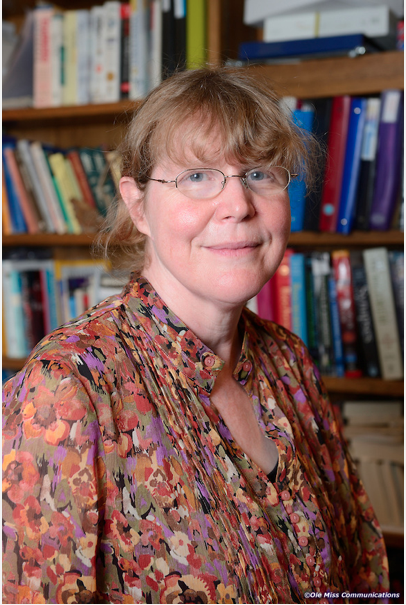The Sarah Isom Center for Women and Gender Studies has awarded fellowships to six University of Mississippi faculty members for their academic research related to gender and sexuality. Professor of Chemistry & Biochemistry Susan Pedigo is one of these.
“The fellows this year had such interesting and diverse research projects,” said Jaime Harker, director of the Isom Center and professor of English. “All the applicants were so strong that we requested the provost support all the projects submitted this year, and he graciously agreed.”
During the two-year program, fellows receive $4,500 a year in support of the research project they submitted in their fellowship application. The funds may be used as summer salary, for travel and/or for graduate student support. Fellows may also coordinate with the Isom Center to plan lectures, campus events and develop new cross-listed courses.
“We feature their work in a poster session every fall,” Harker said. “I am always inspired by the work of Isom fellows, and our fall reception is one of my favorite events every year.”
The poster session will take place this year at 3 p.m. Sept. 21 in the Ford Ballroom at The Inn at Ole Miss.
Pedigo, professor of chemistry and biochemistry, said she will use her fellowship to examine the attitudes of women and Black faculty in chemistry departments in Mississippi universities about the issue of merit and reward. She will use the funds to recruit and pay student workers for the development of qualitative assessments, interviews and interview analysis addressing this subject.
The gender gap in STEM faculty is well documented; however, the cause of the gender gap is not well understood, Pedigo said. She believes a problem exists with the rigidity and nature of the structure around the merit and reward system in academics.
“There is heavy demand on faculty to be competitive individualists who enter into a binding work contract upon hire; thus, faculty members are tracked into a path from which they cannot deviate,” she said. “I hope that my research prompts conversation and reflection around topics that are generally not discussed. Tenure and promotion guidelines are steeped in tradition and do not allow for alternative pathways to excellence and institutional transformation.
“Faculty is tasked with training students to tackle the problems of the 21st century, and only a diverse workforce trained by a diverse professoriate can accomplish this task.”
